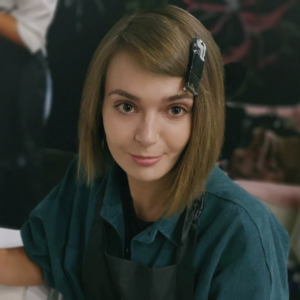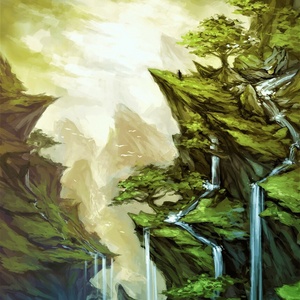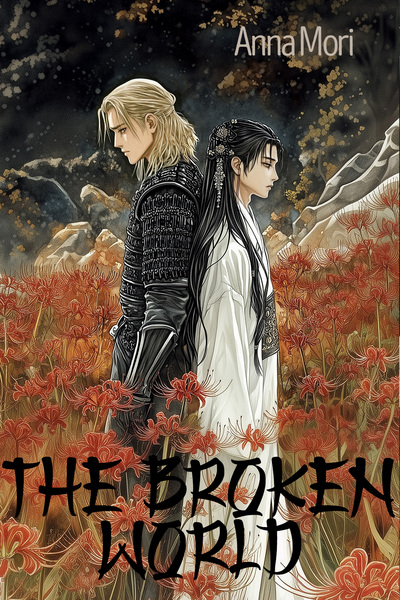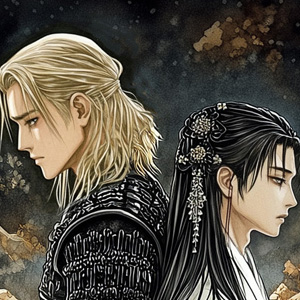“Why am I not afraid? I’m only twelve...”
Perhaps he wasn’t afraid because the life he had lived didn’t feel confined to these twelve years. How many other lives had he lived? How much had he already seen? His friends from the Dragon Kingdom — he was them, all of them: Dan’s defiant bravery, Lunhe’s transparent sorrow, Fai Faen’s quiet kindness, Mika’s grim determination — they were all his, as much a part of him as his own breath. And there were so many other shades of lives he had imagined, less important but still vivid. All of it he had tried, however clumsily, to capture in drawings and awkward words. He felt it all; it was all with him. Wasn’t that enough for one person?
But the moment he thought of the Dragon Kingdom, he also remembered the endless white wasteland it had become and the bones in the snow. A wave of grief surged up inside him, so vast it felt like it would burst his chest — It’s gone, all of it, gone, gone, gone. Or was it just that he had no air left?
And then he remembered who had destroyed his Ryukoku and taken his friends from him. Twisted, distorted logic, but it was this thought that allowed him to hate Yukiyoshi with his whole being in that moment.
He fought back — where had the strength come from? He broke free, gulped in a searing breath of air, and lashed out blindly. His fingers found his brother’s head and neck. He pushed him down, holding him underwater, and didn’t let go until he felt Yukiyoshi go limp.
Yuki shoved the lifeless body away. It sank soundlessly into the black depths of the pond and disappeared.
He stood.
He raised his head and looked at the garden. For a moment, he simply stared, as though seeing it for the first time. Dawn had just broken, and the royal palace was veiled in mist — it was autumn.
“How beautiful,” Yukinari thought with wonder.
It was the first thing he felt after the killing. Not shame, not guilt, not fear, not even relief at being alive. Just an overwhelming sense of the world’s beauty.
His eyes took in the darkness of the earth, the pattern of the leaves, the glint of dew-beaded spiderwebs stretched between branches. It was all so vivid, so real, so breathtakingly beautiful that tears filled his eyes.
In that moment, he knew he would do everything in his power to make this city and this country just a little more like the Dragon Kingdom of his dreams. And if human strength wasn’t enough — well, he was the descendant of a god, blood of the Dragon itself.
And then everything else finally came — the guilt, the shame, the fear — and he began to cry. His body trembled. When the full weight of what had happened — no, not happened, for that implied it had occurred on its own — when the full weight of what he had done struck him, he vomited. He hadn’t eaten anything yet that day, so it was mostly water and bile.
He washed his face but vomited again. He washed himself once more, scrubbing his face with the pond water over and over, as though trying to cleanse an invisible stain. But it was clear he would never be able to wash away what he had done.
How could he? Just minutes ago, Yukiyoshi had been alive, and now he was gone. There must have been another way — he could have talked to him, explained things... locked him in the tower again if he didn’t listen, or sent him off to some distant province. There were always longer, harder, but better paths.
But now his brother was gone, and nothing could change that. Nothing could undo it.
He had killed Yukiyoshi to protect his Dragon Kingdom. And now he had neither.
A strange sound rang out — like a muffled tolling of a bell: a chime, a vibration, a whisper. Ripples spread across the surface of the pond. Then, from the water, slipped a dark turquoise scaly ribbon, which gently curled around his arm. What a peculiar creature: webbed ears, branched horns, absurdly long whiskers; eyes like black saucers filled with stars. A dragon, it's a dragon. Yukinari gasped and, with cautious awe, touched one of its horns.
The creature spoke to him — its mouth didn’t move, but Yukinari heard the words in his mind.
“Hello.”
The dragon’s voice was soft and fragile, like that of a teenager.
“Hello,” Yukinari replied.
“You did something wrong.”
Yukinari fell silent. He could have said, Yes, I know, I’ll never do it again, forgive me — but the words caught in his throat because there was no one left to ask for forgiveness.
“Yukiyoshi was a bad person,” the voice in his head said comfortingly. “No one will mourn him.”
“I’m a bad person too,” Yukinari whispered.
“That's not true,” the dragon said firmly. “Otherwise, I wouldn’t have shown myself to you.”
“No one will mourn me either when I’m gone.”
“You just haven’t been known well enough yet,” the dragon said. “But they will love you. And they will mourn you.”
Yukinari felt a strange warmth at the dragon’s pity, though he didn’t fully believe it.
“They will love me? I’m not sure... The only good thing I had was the Dragon’s Kingdom. But everyone there’s dead now, and all that’s left is snow and bones... I don’t know what else there is to love about me.”
The dragon reassuringly wrapped its tail around his little finger.
“They will love you, all those you wish. You’ll see, you won’t always be alone,” it promised with deep conviction.
Yukiyoshi’s body eventually surfaced, and they found him. He had been in the water too long for the court physicians to give any definitive answer. Whether it was an accident or not — everyone had a different opinion. Yukinari began to be watched with suspicion, but no one dared accuse him of anything. Even the left minister, Ise-no Akahito, who was evidently upset that the prince he had influence over had died.
Yukinari didn’t like Minister Ise-no Akahito — not for personal reasons, but for quite objective ones: when Yukinari began piecing together fragments of information about court intrigues, he realized Akahito played a significant role in them.
He still didn’t know how to improve the life of the palace and his country, but now he believed it was possible. To start, he needed to talk to someone openly about it — and he chose the one person he trusted, General Nakatomi.
Previously, Yukinari had thought it would be terribly difficult to arrange a conversation with someone he didn’t know, but those very lessons on culture and court etiquette, which he had dutifully absorbed over time and considered useless, suggested to him that it was quite simple: he sent Nakatomi an iris as a gift, symbolizing loyalty to the imperial family, and in return, the general politely invited him to his house. It was more of a formality, but Yukinari gladly accepted the invitation.
However, no one had really taught him how to have a private conversation — without a crowd of advisors — so, almost immediately upon entering, Yukinari blurted out:
“I know you’re loyal to my grandfather. They say he’s ill and... it’s complicated. I came to...”
He hesitated, because the old general bent into one of the traditional bows. Before Nakatomi could finish his greeting, Yuki swiftly approached him and said:
“No need, no need to bow, you’re no longer young — I release you from three bows…”
Nakatomi straightened up and looked at Yukinari with interest.
“Thank you. What do I owe this visit, Your Highness?”
“What I’m about to say might sound foolish... but I’d be grateful if you helped me figure this out. Give me advice. What should I do, who should I trust...”
“How can I tell you what to do? You’d know better what you want...” the old man said, studying Yukinari. “Tell me — do you love Ryukoku?”
Yukinari hesitated. He didn’t want to lie. And he couldn’t honestly say how he felt about the country he was supposed to rule. Perhaps pity?
He wasn’t sure if he should tell this — completely foreign — man about his imagined Dragon’s Land. He had never spoken of it to anyone except Yukiyoshi, but he decided to share anyway:
“I’d like our country to be like the one I...”—He decided to twist the truth a little and ended the sentence differently than he’d planned—“...dreamed of... well, you know, when I was a child.”
He paused, waiting for the old man to laugh at him or, worse, to show indifference. But the general kindly replied:
“It’s good when you have a refuge in your heart where you can take shelter. But don’t lock yourself there forever. You could do a lot of good for the real people.”
Yukinari wanted to tell Nakatomi that the people who lived — had lived — in his country were just as real as those who inhabited the palace, and that more than anything, he wanted to bring them back, to revive them... But he decided the general wouldn’t understand that.
“I’m not mad,” he said in response, perhaps more to his own thoughts than to the general’s remark.
“I know,” the old man replied seriously.
“Really?” Yukinari asked, genuinely surprised. “Because sometimes... I see and hear things... things that probably aren’t there. But I know they aren’t really there,” he quickly added. “And I really do want to be a good ruler... better than...”
He choked on the last word — he couldn’t say his brother’s name aloud.
General Nakatomi turned his eyes away — probably remembering Yukiyoshi too — but then he looked back at Yukinari, and neither his knowing gaze nor his tone changed.
“I think you need an advisor.”
Yukinari wondered if the little dragon from the pond could be his advisor. No, probably not — the dragon didn’t know much about the life of the palace and the country. Besides, it might just be a figment of his imagination.
“Can’t you be my advisor?” Yukinari asked.
“I’m a soldier, and while my family is noble, soldiers aren’t really favored at court. Besides, as you’ve noticed, I’m old — almost as old as your grandfather the emperor. But I know a few good, honest people who can help you more than I can. First, there’s a man currently serving as governor in one of the southern provinces — he’d gladly return to the court if he considers you a worthy successor to the emperor…”
Nakatomi mentioned several names and gave more advice, which Yukinari listened to carefully, memorizing every word.
As he was leaving, Yukinari said:
“Thank you for believing in me.” He remembered how the archivist had called him a madman, and the old wound stirred within him.
The old general smiled.
“Our country isn’t so rich that we can afford to throw away broken things. I don’t know if you’ve ever seen, living in the palace, dishes mended with golden or silver lacquer... We repair what’s broken, and with a bit of luck, those things often become even more beautiful than before…”
Yukinari didn’t understand these words. Was he a broken thing? If anything was broken, it was the world they lived in.
Does that mean it could be fixed?
Among other things, Nakatomi advised him to always rely on his heart. It seemed odd to give such advice to a boy who could barely tell fantasy from reality. But later, when Yukinari’s mind would finally clear and he would come to understand people better than anyone, he would be surprised to realize that, even in those years, even through the fog that surrounded him, knowing the world mostly from books and understanding little of human relations, he had somehow managed to act correctly and intuitively distinguish those who could be trusted from those who could not...
Those who reminded him of his friends and soldiers from the imagined Dragon’s Land would turn out to be good, loyal, and honest people.
He wouldn’t get close to any of them. His unfortunate, cruel brother Yukiyoshi had been wrong in thinking the emperor could have as many friends as he wanted; it would turn out that, quite the opposite, an emperor could not afford the luxury of having friends — not even one.
And, of course, his childhood friends from the Dragon’s Land would never be resurrected — not even in his imagination.
Even as he grew older, he would continue to return to that world in his thoughts, but he would not be able to change its fate — all attempts to alter something, to rewrite its story, would be futile and meaningless. General Nakatomi had called the world of his imagination a refuge, but for Yukinari, the snow-covered Dragon’s Land would resemble more of a graveyard. Walking through it, he would feel just as alone as in the real world.
When the whole country would be celebrating his coronation, Yukinari would sit alone in the garden near the palace wall, preparing his speech, listening to the voices and music drifting from beyond it, hating his court, his country, and the entire world for the way everything was unfairly arranged — a celebration in his honor, yet he wouldn’t even have the right to go into the city and join the common people in their revelry — and asking himself where he would find the strength to endure, and endure, and endure it for the rest of his life.
Several hours later, when he would ascend the steps to the throne in a gown the color of frozen blood, speak the ritual words, and place his grandfather’s crown upon his head, he would think of his dragon’s words. That someone would love him. That somewhere — perhaps on the other side of the world — there was someone destined to share his solitude.
This would happen four years later. He would be sixteen — in the year of the Wood and the Snake, under the sign of Yin.












Comments (2)
See all